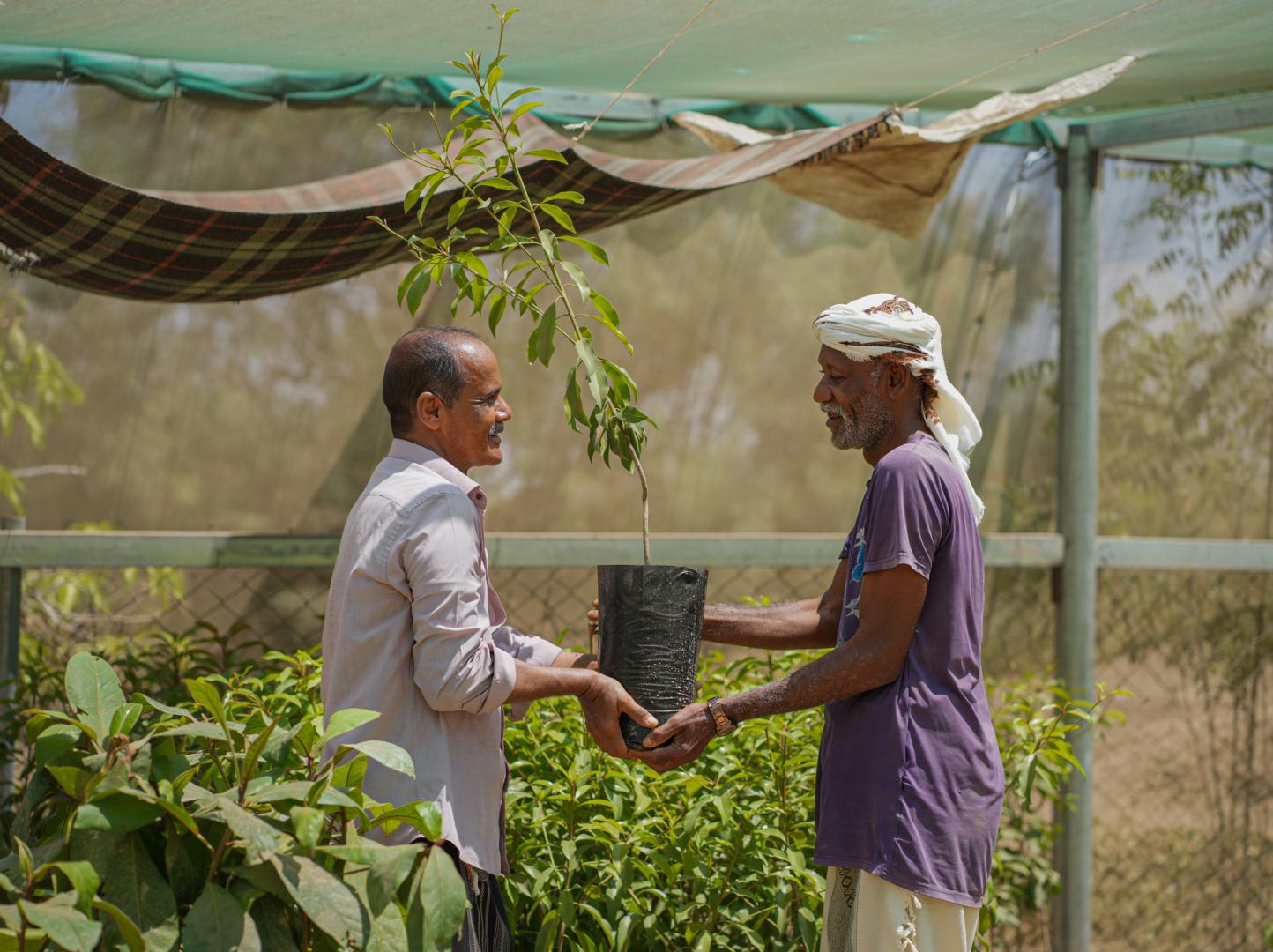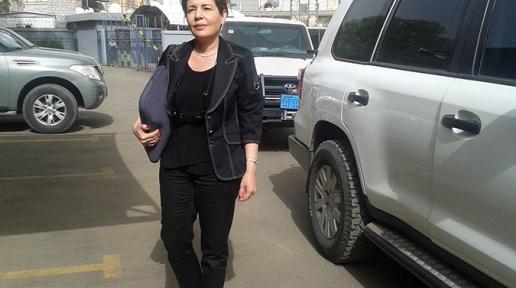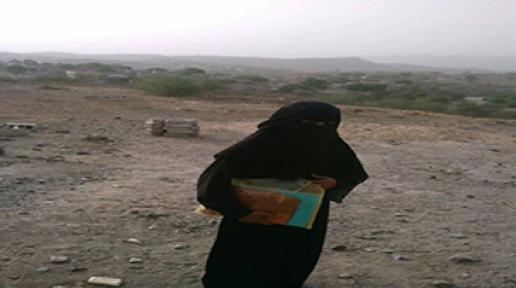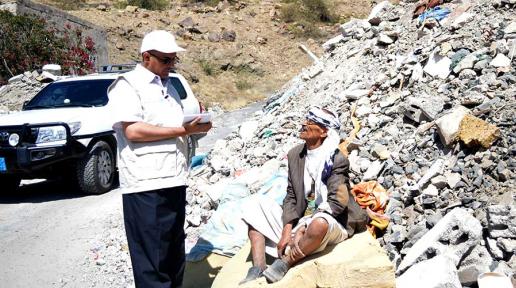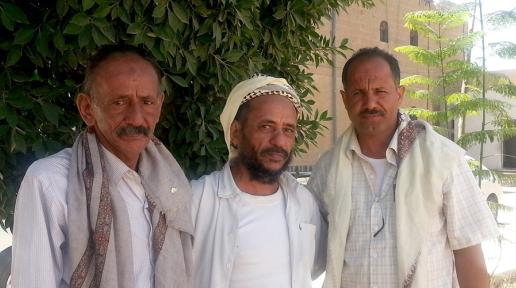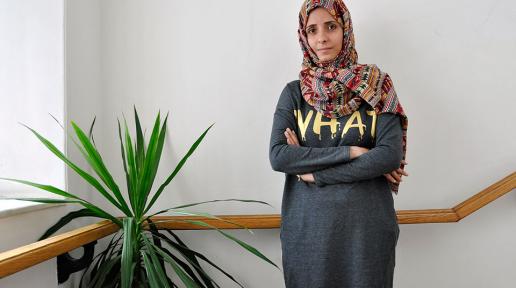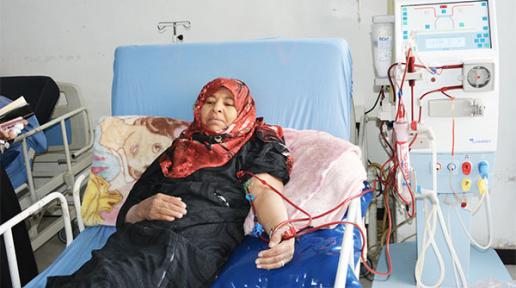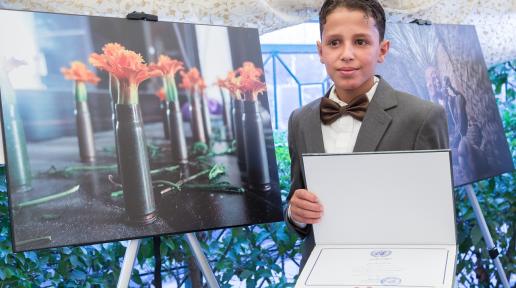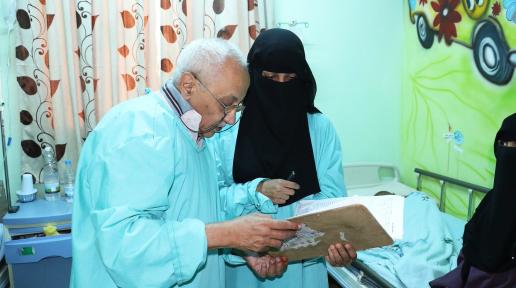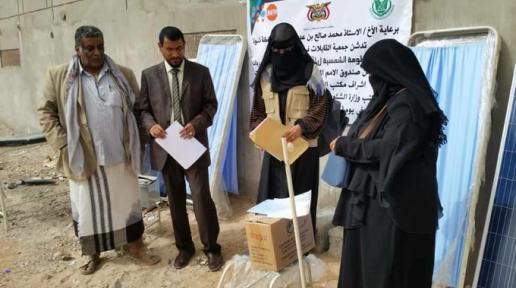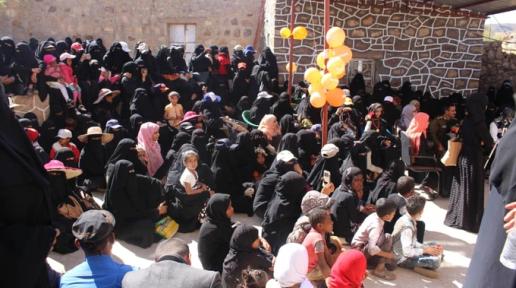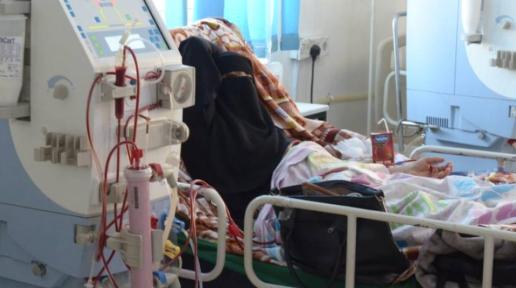Story
16 July 2025
UNDP Yemen: Strengthening Local Systems for Sustainable Food Security in Yemen
Cantaloupe, corn, grapes, vegetables, and grains. Yemen’s agricultural heartlands once provided variety and quality.But climate change has dried up fertile lands while more than a decade of conflict has created an unprecedented crisis where more than more than half of the country’s population need humanitarian assistance. Solutions are needed now and for the long-term if communities are to build food security. Agriculture sits at the heart of this challenge, but Yemen’s conflict has resulted in catastrophic economic decline, with irrigation systems left damaged, while farms are threatened by both water scarcity and flooding.In Al-Majhafa, Lahj Governorate – once famed for its diverse crops – the United Nations Development Programme (UNDP) with national partner Yemen’s Small and Micro Enterprise Promotion Service (SMEPS), and support from the World Bank’s International Development Association, have been taking a holistic approach as part of the Emergency Social Protection Enhancement and COVID-19 Response Project (ESPECRP) that seeks to strengthen the food supply chain, taking each actor into account for the benefit of all. Thirsty fields pose a challengeDesertification threatens almost 97% of Yemen’s agricultural land, with between 3% and 5% of arable land further degraded annually. This is a stark representation of the gradual yet significant loss of the nation’s capacity for self-sufficiency in food production. “As farmers, we face great difficulties in irrigating our lands. Groundwater is scarce and rainfall infrequent. The soil becomes harsh and dry, which makes it difficult to grow crops,” explains Ali, a farmer from Al-Majhafah District.A reliance on traditional methods like flood irrigation is a key cause of groundwater shortages in the region. At the same time, Al-Majhafah is grappling with severe drought due to scant rainfall, encroaching sand dunes and high temperatures. Strong supply chains for sustainable agricultureAgriculture encompasses the entire journey of crops, from field to table. A successful harvest depends on a series of interconnected actors—farmers, nursery owners, input suppliers, marketers, retailors, and community cooperatives. When this chain is broken, food security is threatened.“By supporting agricultural supply chains, the project aims to connect each actor with another so that each complements the other’s work,” Walid Fadl, an advisor for SMEPS, explains.“By interconnecting the chain, we ensure the continuity of work, create job opportunities in rural areas and secure the continuous and uninterrupted availability of various crops in the market –enhancing food security in the region,” Walid adds. Investing in sustainable practicesThe agricultural supply chain begins with farmers. Through technical and financial support, Ali and more than fifty other farmers from Al-Majhafah, Lahj Governorate, have gained the knowledge and skills to improve their crops quality and production through sustainable practices.“Before the training, I had never heard of irrigation networks and relied solely on flood irrigation,” explains Ali. “That method was not only exhausting but also wasted water and our money on fuel for generators.”“Now, I have learned to use drip irrigation systems, I use fertilizers suitable for my crops and reinvest profits from one harvest to improve my farming in the next season,” Ali adds.Buying seedlings was another significant challenge. Previously, farmers were forced to travel to other regions to buy them, which was costly.To address this, the project supported six local nurseries with drip irrigation systems and greenhouse plastic sheeting for year-round seedling growth.“I received training on how to preserve assets and arrange seedlings in a way that boosts sales, explains Hani, a nursery owner. “The improvement is remarkable,” he says. “Farmers can now inspect and select seedlings locally at lower prices, confident that they are perfectly suited to our climate.” Quality control for a stronger chain Another vital step towards food security involves addressing the quality of seeds, fertilizers, and irrigation equipment.“Before, we would go to buy seeds, fertilizers or irrigation networks, only to find them out in the open, exposed to the sun, wind and rain,” recalls Hazem, a local farmer. “The fertilizers would harden, and the irrigation networks parts would crack and break.”The project helped local input suppliers better maintain the quality of their products. Hisham, a supplier, struggled to store his equipment. “SMEPS stepped in with half the funding for a warehouse – we contributed the rest needed for construction.”The new warehouse has made a significant difference, with farmers now able to buy products kept in good condition. From farm to market: A coordinated effortOnce a crop is grown, it must get to market. Through the project, micro retailors received support through small vehicles (tuk-tuks) and training.“I purchase crops from farmers and transport them to local markets,” says Salem. “I was trained in marketing and crop supply, and this has improved my income.”Support to cooperatives augments the final stage of the agricultural supply chain.“Our cooperative is committed to enhancing the agricultural sector and helping farmers export their crops,” said Anwar, head of the Sa’ad Al-Muntasir Agricultural Cooperative.The cooperative’s very existence is based on the principle of collective strength, as Anwar explains: “No individual farmer can achieve development on their own; that is precisely why the cooperative was formed.”The project provided the cooperative with training and a tractor, helping expand its activities in the area and allowing farmers to plow their lands at a far more affordable rate. Investing in human capital for a sustainable futureThe strength of the agricultural supply chain is wholly dependent on the people involved. With their knowledge, skills and experience, the chain becomes more cohesive and resilient. Offering comprehensive training for all the actors is an investment in human capital and in individual livelihoods. It is no longer just the farmer who can increase production, improve quality and diversify crops; now, every actor is equipped to manage their business with greater confidence in the face of challenges.This focus on human capital within the supply chain is essential for sustainability and serves as a fundamental pillar for achieving food security and resilience within rural communities. The Emergency Social Protection Enhancement and COVID-19 Response Project (ESPECRP) supports geographically bundled interventions of nutrition-sensitive cash transfers and temporary employment, while also improving access to sustainable livelihoods, key services, and economic opportunities for areas affected by hunger, malnutrition, and climate related shocks. The project is in line with the World Bank’s integrated approach to improve food security resilience for Yemenis. Funded and supported by the World Bank’s IDA through a US$ 232.9 million contribution, ESPECRP is implemented by the Social Fund for Development (SFD), the Public Works Project (PWP), and the Small and Micro Enterprise Promotion Service (SMEPS) in partnership with UNDP Yemen.
